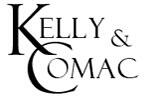New year brings new Brexit rules into force
To all intents and purposes, the UK left the EU on 31 December 2020. However, some changes to rules were delayed to ease the transition. From 1 January 2022 there are additional customs rules to be aware of for businesses trading with the bloc. What's changed?

Following the UK’s exit from the EU, there have been wholesale changes to the way imports and exports of goods are handled. The agreement struck in December 2020 means that there are no tariffs applied, but import tax has been applicable since January 2021. Certain processes, mainly regarding paperwork, were not initially required in order to allow affected businesses time to get used to the new relationship with their customers. These have now taken effect:
- full customs import declarations are needed for all goods at the time a business or the courier/freight forwarder brings them into Great Britain
- customs controls at all ports and other border locations
- the possible need for a suppliers’ declaration proving the origin of your goods (either UK or EU) if using the zero tariffs agreed in the UK’s trade deal with the EU
- commodity codes, which are used to classify goods for customs declarations, are changing.
Further information is available from HMRC.
Related Topics
-
Planning ahead for pension salary sacrifice changes
From 6 April 2029, both employers and employees will be required to pay Class 1 NI on pension contributions in excess of £2,000 made through a salary sacrifice arrangement. What can you do about it?
-
Marginal relief - responding to an HMRC nudge letter
HMRC is running a campaign to clamp down on incorrect claims for corporation tax marginal relief (MR). In what circumstances might you be challenged by HMRC and how should you respond?
-
Can you claim input tax on costs linked to electric cars?
Your business intends to go green and buy new electric cars. Can you claim input tax on the purchase of the vehicles and their subsequent fuel costs? Additionally, what recent change has been announced by HMRC?

 This website uses both its own and third-party cookies to analyze our services and navigation on our website in order to improve its contents (analytical purposes: measure visits and sources of web traffic). The legal basis is the consent of the user, except in the case of basic cookies, which are essential to navigate this website.
This website uses both its own and third-party cookies to analyze our services and navigation on our website in order to improve its contents (analytical purposes: measure visits and sources of web traffic). The legal basis is the consent of the user, except in the case of basic cookies, which are essential to navigate this website.